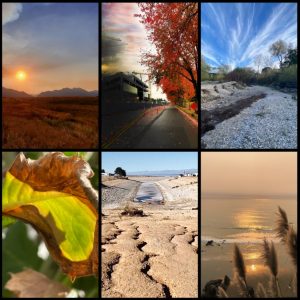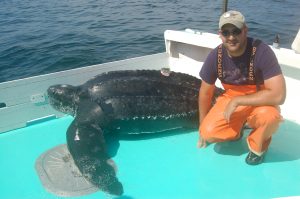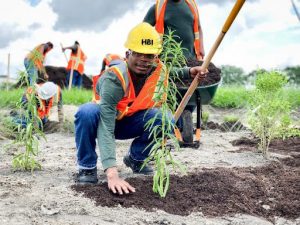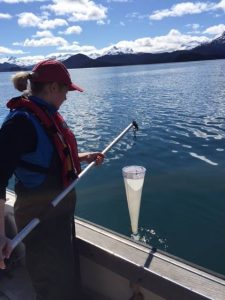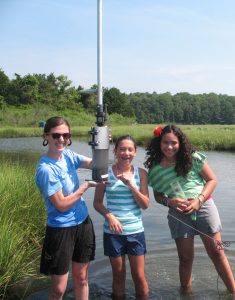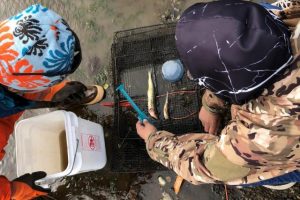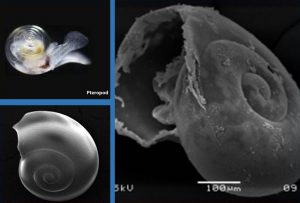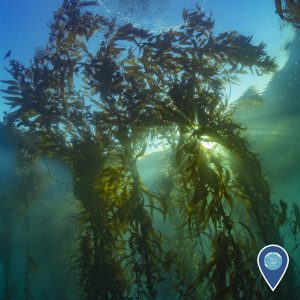Picture Climate Change: A glimpse at climate change in the west through the lens of American youth
NOAA West Regional Team The NOAA West Regional Team will showcase the winners of NOAA’s “Picture Climate Change” Student Photo Contest during this NOAA Live! 4 Kids Event! NOAA challenged students in fifth through twelfth grade from all U.S. states and territories to help NOAA understand how climate change has impacted them, their family,…
Read MoreTurning Up the Heat: Fish and sea turtles in a warming world
Vincent Saba, NOAA’s Northeast Fisheries Science Center in Woods Hole, MA and NOAA’s Geophysical Fluid Dynamics Laboratory at Princeton University in Princeton, NJ From microscopic plants to large whales, climate change is affecting all ocean life. There are many ways in which climate change can affect ocean ecosystems but during this webinar, we will investigate the effects of…
Read MoreKeeping Rain from the Drain
Jessica T. R. Brown, NOAA’s Georgia Sea Grant in Brunswick, GA Have you ever wondered where the rain goes once it hits the ground? Rainwater that falls on a surface that can’t absorb it is called stormwater. Scientists and engineers try to mimic nature to catch rainwater where it falls by using plants, soil, and…
Read MoreAlgal Blooms: Signs of Spring and Signs of Trouble
Rose Masui, NOAA’s Kachemak Bay National Estuarine Research Reserve in Kachemak Bay, AK Join us to learn about how estuaries wake up in the spring, with warming waters and nutrients fueling blooms of phytoplankton in Alaskan coastal waters. We will talk about how marine plants are the primary producers in our coastal food webs, and…
Read MoreGet Your Feet Muddy at the Waquoit Bay Reserve!
Tonna-Marie Rogers, NOAA’s Waquoit Bay National Estuarine Research Reserve in Falmouth, MA Come along as we explore the Waquoit Bay National Estuarine Research Reserve (WBNERR) on Cape Cod, MA. Walk (virtually) with us into the shallow bay to visit experiment sites, explore the salt marsh, observe osprey and bay creatures, and wade into water sampling…
Read MoreHitching a Ride: How to Spot and Stop Marine Invasive Species
Jasmine Maurer from NOAA’s Kachemak Bay National Estuarine Research Reserve in Kachemak Bay, AK How do invasive and exotic marine species arrive and spread in Alaska? We will talk about how to monitor and identify European green crab and tunicates, how they affect ecosystems, and what actions to take before the summer season to…
Read MoreIt’s Not Easy Being Shelled: The Ocean Acidification Blues
Meg Chadsey, NOAA’s Washington Sea Grant and the NOAA Pacific Marine Environmental Lab in Seattle, WA Excess carbon dioxide (CO2) isn’t just warming the planet; it’s also reacting with seawater and making the oceans more corrosive—a process known as ocean acidification. This slight increase in acidity doesn’t change the way the ocean looks or feels…
Read MoreTalking Trash: Marine Debris Research in Alaska
Peter Murphy, NOAA’s Marine Debris Program in Seattle, WA With Alaska’s extensive, rugged and remote coastline, longer than the rest of the United States combined, innovative and creative approaches are required to address marine debris. Join us to learn about types of marine debris of all shapes and sizes, as well as projects that are…
Read MoreCarbon’s Journey and Our Warming Planet
Frank Niepold and Tom Di Liberto, NOAA’s Climate Program Office in Silver Spring, MD The carbon cycle is a process where carbon dioxide travels from the atmosphere into living organisms and the Earth, then back into the atmosphere. Learn how changes in carbon dioxide levels, such as burning fossil fuels (oil, gas, etc.), affect the…
Read MoreSwimming in Dirty Water – Pollution and Fish Health
Cathy Laetz, NOAA’s Northwest Fisheries Science Center in Seattle, WA Every day humans produce tons of chemicals that can drain into our rivers, lakes, and oceans. In the Pacific Northwest, these waters are important habitat for fish like salmon. You wouldn’t like to swim at a polluted beach and our science tells us that the…
Read More
